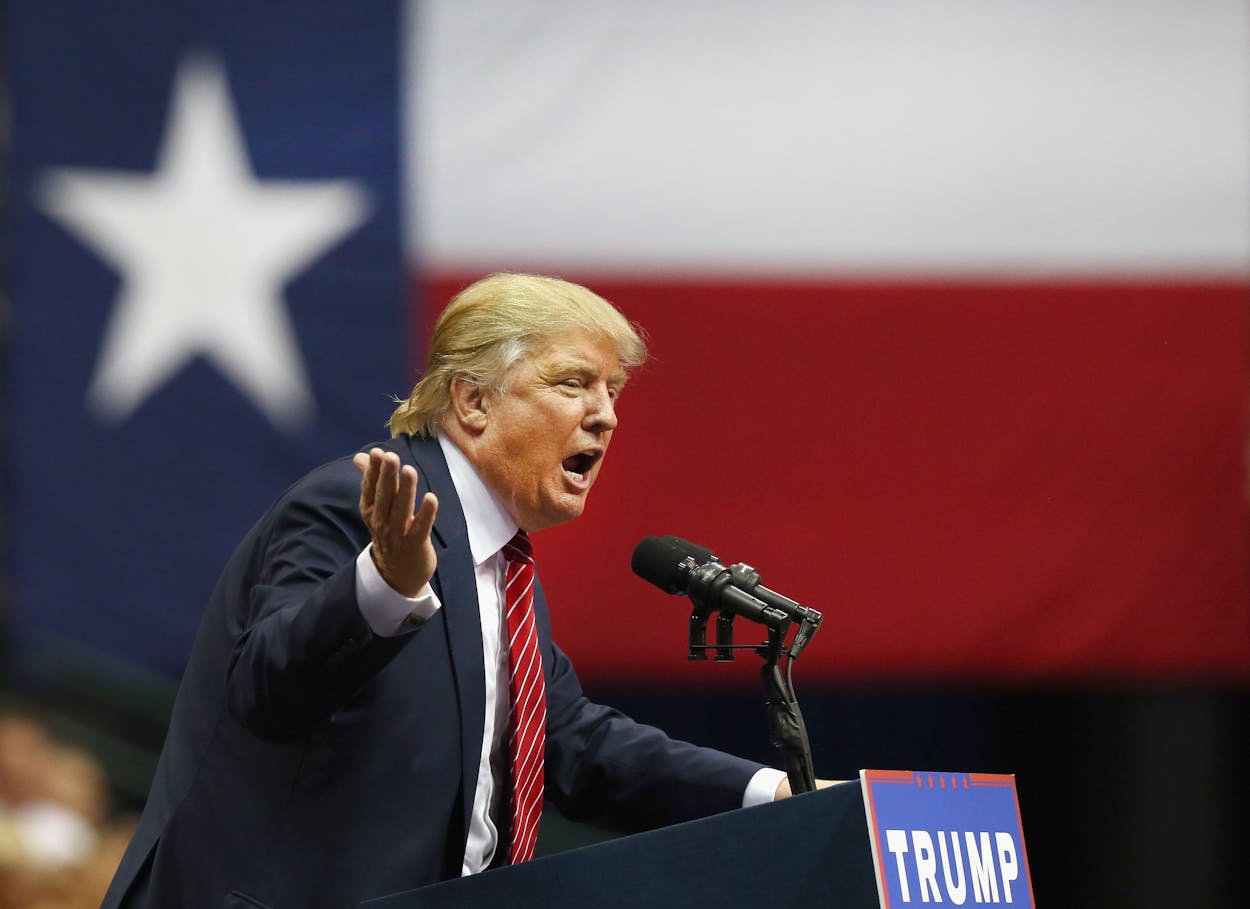I’ve spent much of this week on the road, criss-crossing the state talking to Texans about the upcoming election. Like most political observers, I have some thoughts about whether Hillary Clinton was right to say that some Donald Trump supporters belong in a “basket of deplorables,” but for now I’ll just offer an observation: during all these conversations, the only Texan who brought up the subject, other than me, was David A. Jones, the co-host of Houston’s Red, White, and Blue, at the outset of a taping yesterday.
It makes sense that those of us in the media, or the political commentariat more generally, have devoted so much time and attention to Clinton’s characterization of Trump’s supporters. But the gaffes we remember, in my view, are the ones that neatly encapsulate concerns that already existed. If Clinton loses, the “basket of deplorables” will be cited in every post-mortem of her campaign. It would be wrong to call the gaffe itself the culprit, though, in that case. Trump has declared himself shocked and disappointed by Clinton’s sweeping attack on the hard-working Americans who are supporting his campaign. The Trump voters I asked this week, however, struck me as weary or resigned.
None of them, incidentally, struck me as “deplorable”; and as I wrote in March, I don’t think Trump supporters should be reduced to the sum of their support for this particular candidate, or assumed to be on the same page as David Duke and Ann Coulter. Most Americans, in my experience, aren’t deplorable. And a new poll from the Texas Lyceum, released this week, offered a reassuring reminder that people who argue about politics on the internet aren’t necessarily representative of the public writ large.
Texas polls, in particular, often suggest that the general public is considerably more temperate, even on hot-button issues, than one might think. According to the Lyceum poll, for example, a majority of Texas adults are opposed to two of Trump’s signature policy proposals: 59 percent oppose building a wall along our southern border, and 51 percent are against a blanket ban on immigration from countries with any history of terrorism directed at the West. Similarly, Texans are less committed to partisan polarization than their elected officials might like us to be: our two favorite political leaders are Greg Abbott, whose approval rating stands at 59 percent, and Barack Obama, who comes in a close second with 56 percent.
The overarching cause of this disjunct between the Texas public’s priorities, and Texas political debates, is that the latter are driven by the small subset of the electorate that decides the Republican primary. In a sense, then, it’s good news for both parties that this year’s polls raise the prospect that Texas might one day have competitive general elections—perhaps even two months from now. The Lyceum poll is the latest in several to find that the presidential election, this year, is closer in Texas than one might think. Among likely voters, with the Libertarian Party and Green Party candidates included, Trump leads Clinton by only seven points, thanks to his ongoing efforts to turn Texas blue. Texas Democrats really shouldn’t expect Republicans to do all the work, even after this morning’s news that Dan Patrick has signed on as the chair of Trump’s state campaign: among registered voters, Trump’s lead drops to one point.
And regardless of whether he or Clinton ultimately prevails in the state, the fact that the race is this close, and that so many voters remain undecided, is consistent with another area of agreement I noticed while reporting this week: Texans really aren’t excited about their choices for president. If anything is deplorable, it’s 2016.







